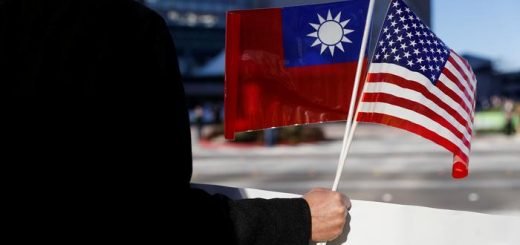Missile deal with Russia could cost India its exemption from US sanctions

Image Represenation: Sputnik
The United States has warned India of being slapped with sanctions instead of being exempt from them if it buys missiles as well as other weapons and defence systems from Russia.
India is finalizing a deal with Russia pertaining to the purchase of S-400 long-range surface to air missile systems. This is a state-of-the-art weapons system with a maximum range of 400 kilometres. It is widely considered one of the best defence systems ever made. This deal is in its final stages and if it gets the green signal, it will be worth $6 billion. The agreement is expected to be completed by this year, provided Russia signs it. However, a top Pentagon official has said that the United States will not take kindly to India if it decides to go ahead with this agreement. Randall Schriver, the Pentagon’s assistant secretary of defence for Asian and Pacific Security Affairs, says that the US looking after its relationship with India and protecting it from any fallouts will not be essential.
Talking to Reuters at a think-tank event, he said, “I would say that is a bit misleading. We would still have very significant concerns if India pursued major new platforms and systems (from Russia).” He also told an audience at the Carnegie Endowment for International Peace in Washington,“We would still have very significant concerns if India pursued major new platforms and systems (from Russia). I can’t sit here and tell you that they would be exempt, that we would use that waiver, that will be the decision of the president if he is faced with a major new platform and capability that India has acquired from Russia.”The US imposed sanctions on Russia after it annexed the Crimean Peninsula. These sanctions state that any nation taking part in defence deals or exchange of intelligence with Russia might also be imposed with the same sanctions. However, a new US defence bill –after intense lobbying by Secretary of Defense James Mattis – has led to the Congress granting the President of the United States, Donald Trump, certain additional privileges. He can waive off the sanctions for any country he deems fit when it comes down to allies aiming for Western arms instead of Russian systems.
Of course, despite Mattis being in favour of granting these waivers to India, Schriver is of the opinion that just because Trump can grant these waivers does not necessarily mean that he will. He also says that Washington is troubled by the prospect of India purchasing the S-400s from their current opposition. “Our strong preference … is (for India) to seek alternatives and see if we could be a partner to India in addressing those defence needs.” India is the world’s top defence importer; this missile purchase would be included in a long list of recent defence transactions. Previously, India has also bought combat planes, ships and submarines from Russia. China, Turkey, Saudi Arabia and Qatar are also following in India’s footsteps by stocking up weapon systems from Russia. Shriver mentioned the possibility of a talk between India and the US about the alternatives to buying weapons from Russia. He is, of course, talking ahead of the momentous summit taking place in New Delhi – India’s capital – next week: The first ever 2 on 2 meet with the US will see Mattis and Secretary of State Mike Pompeo meet their respective counterparts. In the past, India has purchased arms from the US and France but it also depends on Russia for hardware and its extensive arsenal knowledge.
The US has been trying to strengthen ties with India, both diplomatically and in the military field. This comes naturally to both nations with the US working against China’s expansion in the world and India never having shared amicable relations with the Chinese, marking this as a meeting point for both economies.
*Neha Hardikar is a Research Intern at The Kootneeti


















